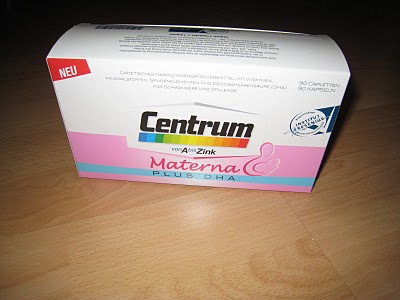
MINNEAPOLIS — with a black tweed hat on her bald head and a purple blouse stretched over her big belly, Lisa Peterson Bender leans forward in the clinic chair, the better to see the ultrasound images of her unborn daughter.
Up on the screen, the tiny girl opens her mouth, furls her fingers and kicks her legs in vibrant 3-D as a technician confirms that, for now, all appears well with the baby being carried by a woman who has cancer.
“There’s the toes: You can see all five of them,” says ultrasonographer Carla Knapp, pointing to a small, clearly visible foot as she conducts the exam at the University of Minnesota’s Maternal-Fetal Medicine Center. “Your baby is a happy baby in there today, I’ll tell you that.”
- Health highlights
- Healthy to-do: Save energy with ‘microbaking’
since the microwave can reduce energy use by roughly 66 percent, compared with a conventional oven, learn how to do more than just make popcorn and reheat.
- Healthy to-do: Save energy with ‘microbaking’
For Lisa and her husband, Ryan, both 32, the relief is palpable. Lisa was barely 11 weeks into her first pregnancy last summer — young, healthy and expecting to sail through the experience — when a suspicious lump in her right breast was diagnosed as malignant.
“We were devastated,” says Lisa, who told TODAY.com she got the call as she was driving home from work. “I went through every form of emotion. I was yelling in the car, ‘No, no, no!’ “
For the past eight months, Lisa, a city planner, and Ryan, a software engineer, have navigated a new world of terrible dilemmas: How do you treat cancer to save the mother — and still protect the unborn baby?
1 in 1,000 pregnant women has cancer It’s a growing problem that now affects as many as 1 in every 1,000 pregnant women, with about 3,500 diagnosed in the United States each year. as more women delay childbirth until they’re older, the incidence of cancer during pregnancy, particularly breast cancer, is going up.
A 2009 study of Swedish women of childbearing age found that the incidence of breast cancer associated with pregnancy more than doubled between 1963 and 2002, partly because of births to older mothers, suggest the authors, whose work was published in the journal Obstetrics and Gynecology.
Researchers now estimate that between 7 percent and 15 percent of breast cancers in pre-menopausal women occur in those who are pregnant, said Dr. Elyce Cardonick, an associate professor of obstetrics and gynecology at Cooper University Hospital in Camden, N.J.
“It’s not going to be as rare as we once believed,” says Cardonick, who created the Cancer and Pregnancy Registry in 1997 to collect enough data to detect trends.
As the number of the cases grows, however, so do the options for treatment. instead of terminating pregnancy, once almost universally recommended, or waiting to treat the disease until after childbirth, perhaps allowing the cancer to grow, more women are urged to battle the cancer head-on.
“You treat them the same,” says Cardonick. “You do what would be indicated if she were not pregnant.”
That can be a shocking concept for modern pregnant women who avoid coffee, wine, even soft cheese and lunchmeat, in the effort to nurture healthy babies. Suddenly, when they have cancer, surgery and drug therapy are not only OK, they’re necessary.
“I had given up caffeine, I was trying to eat really organic food and then I was going to do chemo?’” says Lisa, a marathoner and cyclist. “It’s so psychologically hard to reconcile putting poison in your body.”
Lisa, who was diagnosed with Stage II breast cancer, opted for both surgery and chemotherapy, undergoing four three-week rounds of drug treatment during her second trimester. while she struggled with the idea of putting harsh drugs in her body — “The purpose of chemotherapy is to stop cells from growing,” she points out — she knew she had to try to halt the disease even as she protected the baby.
“I was very committed to this pregnancy,” explains Lisa, who was slow to embrace parenthood, but discovered a fierce protectiveness that surprised even her husband.
“She has this strong maternal instinct that I hadn’t even seen until now,” Ryan says, adding later: “I want to make sure the baby has a mommy.”
Their daughter is due March 17; the couple has picked out a family name for the child, but they’re not sharing it until she’s born.
‘A little bump’ leads to diagnosis In some ways, Lisa was fortunate. her cancer was diagnosed quickly, within weeks of her husband noticing “a little bump” in her right breast and then her own detection of another, larger lump.
But many women are not. changes in their bodies caused by pregnancy can mask the symptoms of cancer, said Dr. Douglas Yee, director of the Masonic Cancer Center at the University of Minnesota.
“Delay in diagnosis among pregnant women is a problem,” he says.
Lisa also was fortunate to find immediate support for her decision to continue the pregnancy. That’s not always the case, even now, notes Cardonick.
Cardonick was spurred to start the cancer registry by Patty Sosnader, a pregnant woman whose doctor sent her to an ethics board and to mental health counselors when she refused to terminate her pregnancy after a diagnosis of Hodgkin’s disease.
“To me, I guess I’m not an advocate of abortion. I just couldn’t see terminating the pregnancy,” says Sosnader, 46, a mother of three in Worcester, Pa., who turned to Cardonick for help. this month, her youngest son, Brenden, the child she bore while battling cancer, turns 13.
Of the 282 women logged in Cardonick’s cancer registry so far, 67 were advised to terminate their pregnancies and 13 actually did so.Current research recommends that most pregnancies continue despite cancer, but some doctors — about 20 percent — continue to advise termination, Cardonick says.